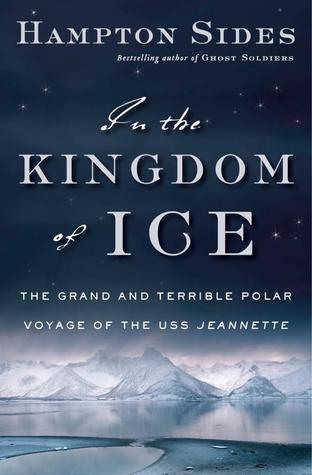More on this book
Community
Kindle Notes & Highlights
Read between
March 11 - April 3, 2024
An 1871 article in the journal Nature characterized the search for the pole as the paramount scientific and geographical riddle of the age: “The immense tract of hitherto unvisited land or sea which surrounds the northern end of the axis of our earth, is the largest, as it is the most important field of discovery that remains for this or a future generation to work out.”
When it came to the Arctic, Petermann was a man “with an undeviating affinity for the wrong guess,” noted David Thomas Murphy, a historian of German Arctic exploration.
He belonged to the men who have cared for great things, not to bring themselves honor, but because doing great things could alone satisfy their natures.”
Captain Nye mulled over everything he had heard. “Well, then,” he said, “put her into the ice and let her drift, and you may get through. Or, you may go to the devil—and the chances are about equal.”
We are not yet daunted.
They hauled up on the small plate of ice and camped. They were, said Melville, “perhaps the most miserable looking collection of mortals that ever crowded shivering together in a heap.”
But Petermann’s information was almost entirely wrong. Native Yakuts and other local tribesmen did venture out to the northern reaches of this part of the delta,
he would have struck a clear branch of the river that would have led him straight to North Bulun within a day. He and his men would never have had to leave their boat. But he had no way of knowing this. Neither the channel nor the village was on Petermann’s map.
It was the camaraderie of suffering, the conviction that what they had already been through outweighed everything else. The magnitude of their struggle had forged a forgiving brotherhood. “Our common dangers and miseries had bred a closer fellowship among us,” said Melville, “a bond which bound us all.”
Oh mother, you can have no idea of what we went through. When I look back it seems more like a strange dream than a reality.
Over and over again, she asked herself whether the Jeannette expedition was worth it—the suffering, the anguish, the loss of life, for what could only be measured as an incremental advance toward the ultimate attainment of the Arctic grail. “Is it said that too high a price in the lives of men was paid for this knowledge?” she asked. “Not by such calculation is human endeavor measured. Sacrifice is nobler than ease, unselfish life is consummated in lonely death, and the world is richer by the gift of suffering.”


